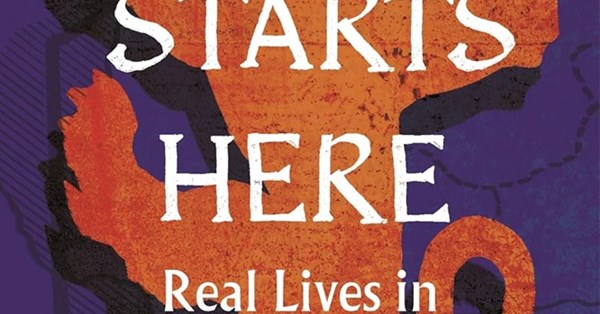HOWARD AMOS first visited Russia as a student in 2007, when he worked in an orphanage in the Pskov Region on Russia’s Western border. Later, he became a journalist based in Moscow, until the Ukraine war made it too dangerous for him to continue his reporting.
In Russia Starts Here, he limits his study of Russia to the Pskov Region and focuses each chapter on particular individuals: he thus digs deep and presents the real Russia rather than a rose-tinted picture from a tourist admiring Moscow’s Kremlin or St Petersburg’s Winter Palace. His ability to describe the environment is striking: you really feel “the high grass soaked in dew” and the March cold creeping into his bones.
It is remarkable how many aspects of Russian society are covered: we see the depopulation of the countryside, the collapse of the economy after the demise of the USSR; we are given an insight into political campaigning and the tragedy of a particularly gifted photographer who dies from an overdose. Especially illuminating is the author’s chapter about a young country lad who decides to prove his masculinity by joining the Russian army in Ukraine, and is killed on his first day at the front. Despite all the gloom and doom, this book ends on a hopeful note: “One day, the pendulum will swing back. . .”
The author’s knowledge of Russia’s religious history, however, has its deficiencies: he dates the dramatic change in Soviet church-state relations to the collapse of the USSR in 1991, whereas the policy change on religion dated back to 1988, when the Russian Orthodox Church was permitted to celebrate its millennium with much pomp and ceremony.
That Alexander Ogorodnikov was “the most famous religious dissident in the late Soviet Union” is questionable: what about Fr Gleb Yakunin, whose dissident activity was regularly reported in the Western press, and the religious poet Irina Ratushinskaya, whose name hit the headlines when Gorbachev, accosted by a bevy of journalists as he landed in Reykjavik for his summit with President Reagan in 1986, announced that she had been freed?
What a pity that a particularly courageous and intelligent Russian Orthodox priest from the Pskov Region, Fr Pavel Adelheim, gets only a passing mention, whereas the high-flying life of Metropolitan Tikhon Shevkunov, hobnobbing with the “nomenklatura” (there is no evidence that he is Putin’s confessor) fills too many pages.
Although the author often looks backwards, one important period in the history of the Pskov Region is not mentioned: the Pskov Spiritual Mission, permitted during the Second World War German occupation, which led to an extraordinary religious revival — churches were repaired, and services, held from dawn till dusk, were filled to overflowing. This was a unique phenomenon in Soviet history.
Xenia Dennen is a Russian specialist, and chairman of Keston Institute, Oxford.
Russia Starts Here: Real lives in the ruins of Empire
Howard Amos
Bloomsbury £20
(978-1-4729-9134-8)
Church Times Bookshop £18

















